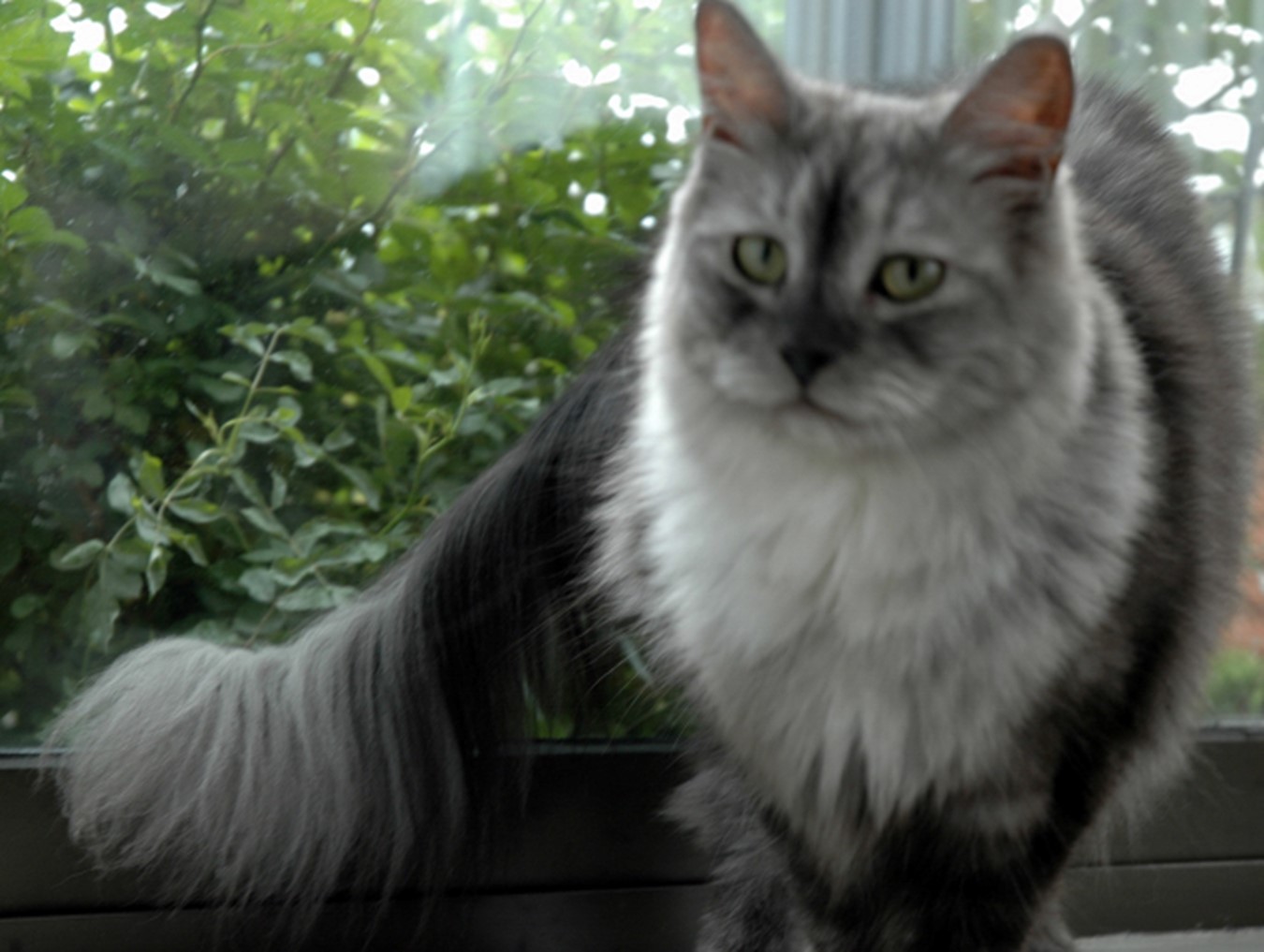CHAPTERS
Navigate to chapter
► Chapter One: Understanding Maine Coon Cats
► Chapter Two: Things to Know Before Getting a Maine Coon Cat
► Chapter Three: Purchasing Your Maine Coon Cat
► Chapter Four: Caring for Your New Maine Coon
► Chapter Five: Meeting Your Maine Coon Cat’s Nutritional Needs
► Chapter Six: Training Your Maine Coon Cat
► Chapter Seven: Grooming Your Maine Coon Cat
► Chapter Eight: Breeding Your Maine Coon Cat
► Chapter Nine: Showing Your Maine Coon Cat
► Chapter Ten: Keeping Your Maine Coon Cat Healthy
Chapter Six: Training Your Maine Coon Cat

Cats have good memories, and the Maine Coon cat, in particular, is an intelligent breed that can certainly be taught a trick or two! Maine Coons are sometimes called the dogs of the cat world, and these gentle giants are not too dignified for learned behavior. Of course, in training a Maine Coon cat, you must start with the basics such as socialization and litter training. Once you’ve got these down pat, you can begin expanding your repertoire and adding tricks up their furry sleeves!
Getting a Maine Coon kitten from a reputable breeder means that your kitten is already on the way to proper socialization skills. But if your kitten still seems a bit skittish and shy rather than the friendly and affectionate cat that Maine Coon cats are known for, then it is up to you to supplement their socialization – and this must be done as soon as possible!
The ages from before 4 to 14 weeks of age are crucial to a kitten’s proper socialization. This is important because he might never outgrow the natural caution and suspiciousness that most kittens have at a very young age. If they still retain these characteristics until they grow mature, you will have a very stressed-out cat that hides at the sight and sound of every strange new thing. Another disadvantage of improper socialization is that the kitten might grow up naturally averse to you or the rest of your family, and while she is part of your household, you might never experience the kind of loving loyalty and affection which Maine Coons naturally have.
Socializing a kitten is not very complicated. Just keep in mind that you shouldn’t push the kitten too much too soon – especially when he is still partly dependent on her mother and the rest of his siblings.
Start out with small doses of daily and gentle handling at about 4 weeks. Once the kitten gets used to you and to being handled by humans, you can slowly begin to start expanding his range of experiences. All these should be done in a positive atmosphere, however, since the lesson you are aiming to teach him is self-confidence in the face of new and strange experiences. For instance:
- Expose him to short bursts of gentle human handling by different people
- Begin exposing him to different sights, sounds and smells around the house
- Early grooming, which is recommended to build the habit of a cat that is used to regular grooming sessions, is also a good way to socialize your kitten and to get her used to human handling.
- Consider getting her used to the feel of a collar, and then later on, a leash. While you might not need to do this for all cats, you might find this learned behavior coming in handy later on for your Maine Coon. The Maine Coon is a large breed, and being a large breed, they can be prone to obesity. Eventually, you might find it necessary to take your cat out for a walk. Besides which, taking your little kitten out for short distance walks – even if it is only until the yard – is a good learning experience that will also expand his range of experiences. As your cat grows, you can also begin experimenting with the use of a harness.
- You can also provide him with a range of different cat toys which you can use to play with him and build your bond
- Take him with you out of the house, whether it is only for short walks, for a car ride, or a visit to the vet. During all these experiences, you should always be present and reassuring to your cat, as they will seek some form of security from you – especially if they are only just beginning to be weaned from their mother.
Once you have begun to properly socialize your kitten, it should continue throughout the rest of the cat’s life. There will always be new experiences waiting for your Maine Coon, and new avenues to explore. Proper socialization can also be the beginning of a wide variety of additional training for your Maine Coon.
If all goes well during the kitten’s formative years, you will likely not have to do any litter training at all. In general, the elimination habits of cats are standard: they dig, eliminate, and then cover. This is instinctive, and comes from a need to hide the smell of their waste from predators.
Part of good litter habits is also your responsibility half the time, however. Make sure that it is located in a place where there is at least a modicum of privacy and where he will not be disturbed, which is also within easy reach. And keep the litter box clean – scooping twice a day and topping it off with additional litter granules, and cleaning and scrubbing the litter box at least once a week. Many times, behavioral problems regarding cats that suddenly refuse to use their litter box can be traced to their natural fastidiousness. Much as humans are averse to using a dirty toilet, neither will your cat be all that fond of using a dirty litter box. Other possible reasons for a behavioral problem among cats who refuse to use the litter box is a box that is of the right size, the wrong depth, or multiple users (i.e., different cats using the same box). Their sudden refusal to use the litter box may sometimes be due to the strong odor of cleaning chemicals you are using. Sometimes a cat may prefer using two separate boxes – one for urinating, and another for defecating; or he may prefer a specific brand of litter. As you get to know your Maine Coon, you’ll figure out the quirks of his personality, including his elimination habits, and you can adjust accordingly.
Clicker Training for Teaching Maine Coone Cats Tricks
Yes, these gentle giants are intelligent and willing enough to be taught a trick or two. Some trainers who recommend using the clicker training method have reported great success in teaching Maine Coons tricks such as shaking hands, high five’s, and even fetching!
No matter which trick you decide to teach your cat first, the training basics are the same. By associating the sound of a clicker with desired behavior and a treat, your Maine Coon has the capacity to pick up a variety of tricks in no time!
Continue Reading…
Want to read the entire thing?

